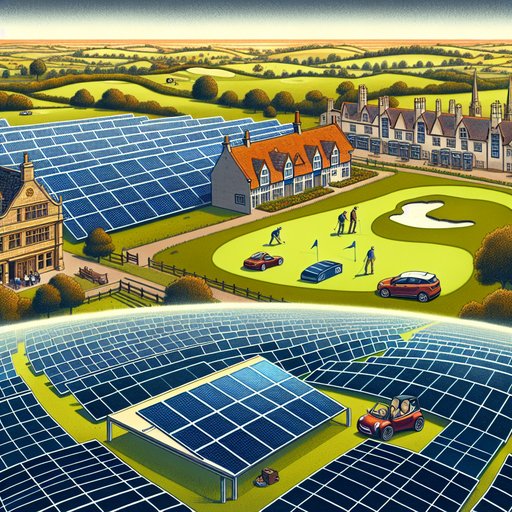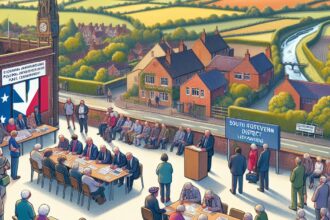The powers that be have robustly defended their stance on solar energy, stating that if you were to imagine the most ambitious solar schemes, they’d still take up less farmland than your average golf course. We’ve seen a surge of solar farm pitches popping up all over Lincolnshire in recent years, with some so grand they’ve been categorised as Nationally Significant Infrastructure Projects (NSIPs), meaning they need the nod from a government minister before going ahead.
Any proposals not quite reaching that level are left to the local planning authority, be it the district or borough council, to decide. Major projects such as Heckington Fen Solar Park, Mallard Pass Solar Farm near Stamford, and the West Burton Solar Project have all got the green light since the last general election. Officials have been quick to emphasise that solar is at the heart of our mission to transform Britain into a clean energy titan.
Despite this, local campaigners have argued that farmland should be for farming, not solar panels. They suggest using rooftops or brownfield sites to safeguard our food security and keep Lincolnshire’s countryside green. But even with more NSIPs in the pipeline, including the mammoth One Earth Solar project, the government has remained firm in its claim that solar would still take up less than one per cent of the UK’s farmland.
They argued: “Food security is national security, and our plans to bolster solar power don’t threaten the UK’s food supply. Even in the wildest of scenarios, solar would still take up less than one per cent of the UK’s farmland – that’s less than what’s used for golf courses – all while reaping huge benefits for the British public and our energy security.”
This statement comes in response to public criticism of Daniel Zeichner MP, minister of state for food security and rural affairs, who has been notably silent on the matter. Campaigner Andrew Malkin wrote: “We’ve been reaching out to him since the start of the year for his take on how new energy infrastructure on thousands of acres of prime Lincolnshire farmland might affect food security. But so far, we’ve heard nothing.” The Government has assured that all ministerial correspondence will receive a response.









